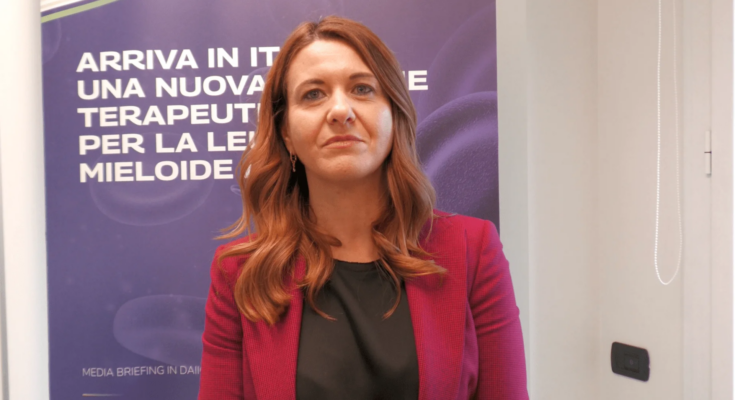“The oral tyrosine kinase inhibitor quizartinib, in the Quantum-First pivotal study, was shown to reduce the risk of death by 22% with a median overall survival of 31.9 months compared with 15.1 months in the chemotherapy-only control group. Double that in terms of overall survival at a very long median follow-up of 39.2 months.” So Gilda Ascione, Medical Director and Head of Medical Affairs of Daiichi Sankyo Oncology Italy, at a media conference organized today by the pharmaceutical company in Milan in the context of reimbursement of new therapeutic options for newly diagnosed Flt3-Itd positive acute myeloid leukemia (AML), an aggressive form associated with a greater risk of relapse and an unfavorable prognosis. “Quizartinib received indication and reimbursement in Italy for patients with Flt3-Itd positive acute myeloid leukemia – specify Ascione – associated with standard induction chemotherapy based on cytarabine and anthracyclines and standard consolidation chemotherapy based on cytarabine, followed by maintenance monotherapy for a maximum of 36 cycles in patients with newly diagnosed AML positive for Flt3-Itd mutations”.
This second generation “tyrosine kinase inhibitor,” “is highly potent and selective, acting directly on the Flt3 receptor which, when mutated, is constitutively active at the cellular level. When quizartinib enters the cell through the cell membrane – as Ascione illustrates – it binds to the Itd domain and blocks the kinase cascade downstream of the receptor that is responsible for blocking leukemia cell proliferation”. These are “actions that support the differentiation of cells into active and ‘physiological’ cells and the induction of apoptosis, or cell death of the leukemic cells themselves”, he concludes.



